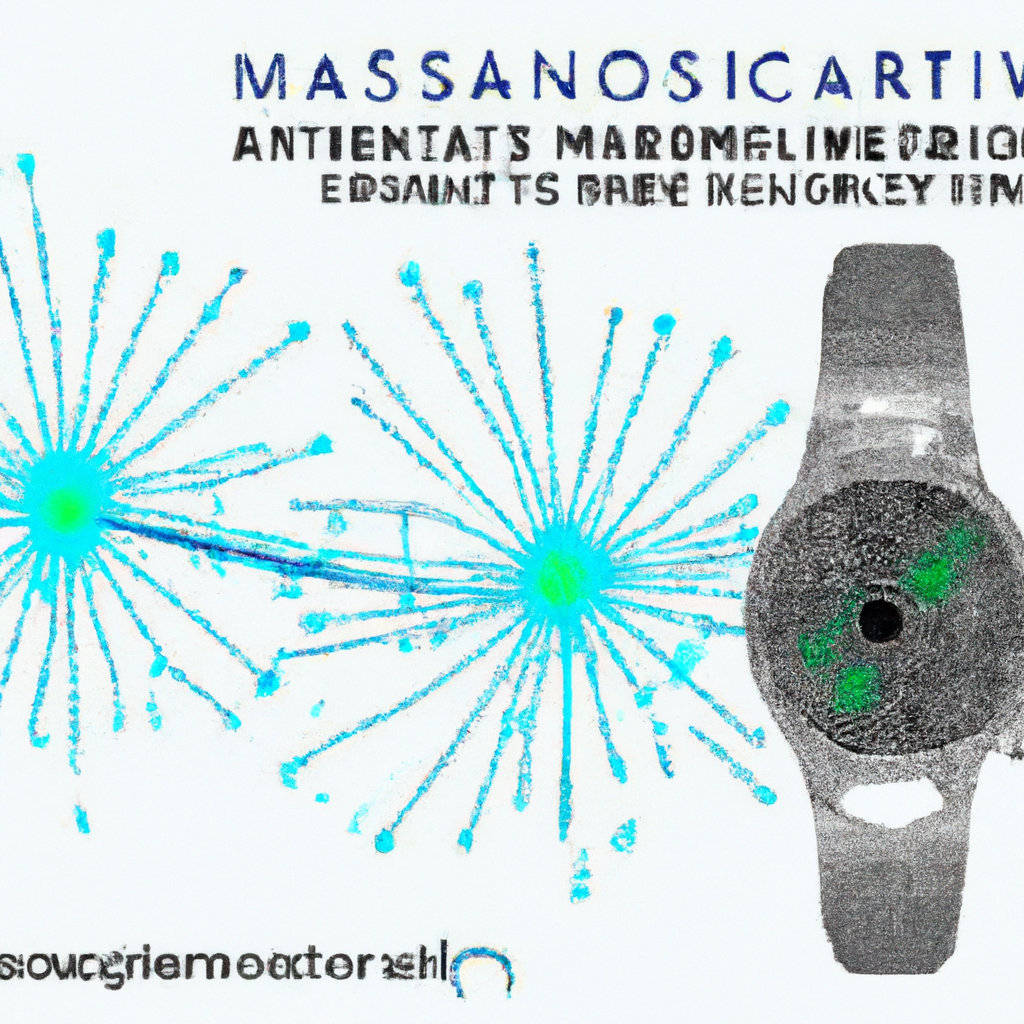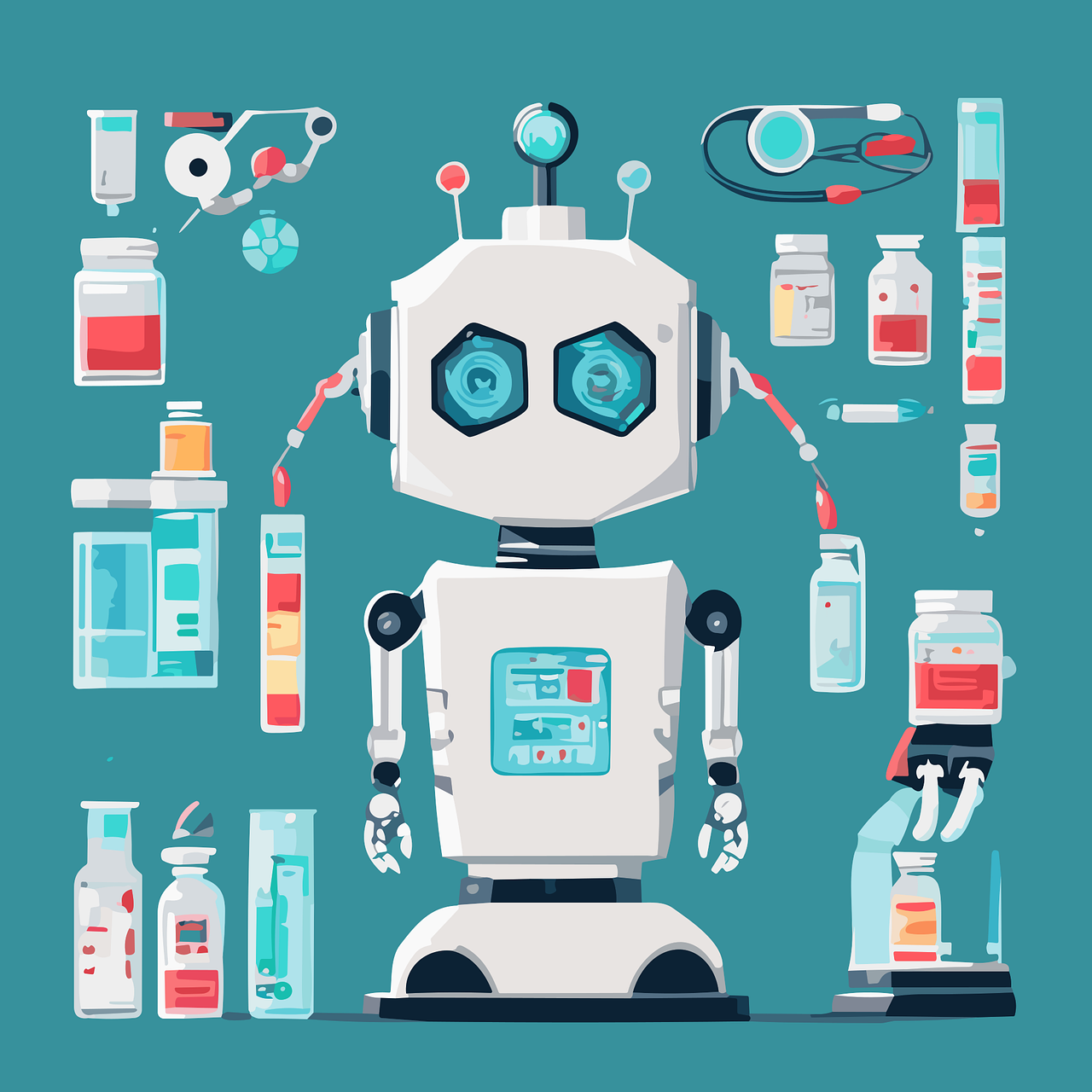In the rapidly advancing field of healthcare, the integration of artificial intelligence (AI) and Big Data has opened up a new realm of possibilities. With the emergence of predictive medicine, we now have the ability to forecast our health future like never before. By harnessing the power of AI algorithms and analyzing vast amounts of data, medical professionals can identify patterns, predict diseases, and provide personalized treatment plans tailored to individual patients. This groundbreaking approach has the potential to revolutionize healthcare as we know it, enabling early detection and prevention of diseases, saving lives, and improving overall well-being. Brace yourself for a glimpse into the future of healthcare, where technology and data are paving the way for a healthier tomorrow.
Understanding Predictive Medicine
Definition of Predictive Medicine
Predictive Medicine is a branch of healthcare that utilizes advanced technologies such as Artificial Intelligence (AI) and Big Data to forecast an individual’s health outcomes and risks. It aims to identify potential diseases or health conditions before they manifest, allowing for early intervention and personalized treatment plans to improve patient care.
Brief history of Predictive Medicine
The concept of Predictive Medicine can be traced back to ancient times when physicians observed patterns in patients’ symptoms and developed predictive models based on their observations. However, the advent of technology, specifically AI and Big Data, has revolutionized Predictive Medicine in recent years. The combination of massive volumes of medical data and advanced computing algorithms has unlocked the potential to predict and prevent diseases more effectively than ever before.
The importance of Predictive Medicine in modern healthcare
Predictive Medicine holds immense significance in modern healthcare systems as it offers numerous benefits to patients, healthcare providers, and society as a whole. By leveraging AI and Big Data, Predictive Medicine facilitates early disease detection, enables more accurate diagnoses, and enhances treatment outcomes. It also plays a crucial role in chronic disease management, preventive healthcare, and shaping healthcare policies based on accurate forecasting.
Role of Big Data in Predictive Medicine
Defining Big Data in healthcare
In the context of healthcare, Big Data refers to the vast amount of structured and unstructured health-related data generated from multiple sources, including electronic health records (EHRs), medical images, wearable devices, and genetic databases. This data is characterized by its volume, velocity, variety, and veracity, and it forms the foundation for predictive modeling and analysis in healthcare.
Sources of Big Data in healthcare
Big Data in healthcare is sourced from various channels, including patient medical records, clinical trials, healthcare claims, wearable devices, and health monitoring systems. Additionally, genetic sequencing data, social media data, and population health data contribute to the ever-growing pool of Big Data. These diverse sources provide valuable insights into patient demographics, treatment outcomes, disease patterns, and population health trends.
Big Data analysis techniques
Analyzing Big Data requires sophisticated computational techniques to extract meaningful information and patterns. Machine learning algorithms, data mining techniques, and statistical modeling play a vital role in analyzing and interpreting Big Data in healthcare. These techniques allow for the identification of risk factors, prediction of disease progression, and development of personalized treatment plans.
Challenges in managing and analyzing Big Data in healthcare
Although Big Data holds enormous potential in Predictive Medicine, there are significant challenges in managing and analyzing such massive volumes of information. Data quality, privacy concerns, interoperability issues, and the need for high-performance computing infrastructure are some of the key challenges faced by healthcare organizations. Additionally, integrating data from multiple sources and ensuring data security pose additional hurdles in harnessing the full potential of Big Data in healthcare.

Role of AI in Predictive Medicine
Defining AI in healthcare
Artificial Intelligence (AI) refers to the simulation of human intelligence in machines that are programmed to perform tasks that typically require human intelligence, such as visual perception, speech recognition, and decision-making. In the healthcare sector, AI is used to analyze complex medical data, identify patterns, and make predictions to aid in diagnosis, treatment planning, and patient care.
How AI interprets Big Data
AI algorithms are designed to process and interpret Big Data in healthcare. Through machine learning, AI systems can detect patterns, learn from past experiences, and make accurate predictions based on large-scale data analysis. AI models can uncover intricate relationships between different variables, enabling healthcare professionals to identify potential health risks and make well-informed decisions.
The relationship between AI and Big Data in Predictive Medicine
The relationship between AI and Big Data in Predictive Medicine is symbiotic. AI algorithms rely on Big Data as their input, while Big Data provides the foundation for AI-driven predictive modeling. The combination of AI and Big Data allows for more accurate predictions, improved diagnostic capabilities, and personalized treatment plans. AI enables the extraction of valuable insights from Big Data, potentially revolutionizing healthcare delivery and patient outcomes.
Limitations and challenges of using AI in Predictive Health
While AI has the power to transform Predictive Medicine, there are certain limitations and challenges that need to be addressed. One significant challenge is the interpretability and transparency of AI algorithms. It is essential to develop AI models that can provide clear explanations for their predictions to gain the trust of healthcare providers and patients. Ethical considerations, bias in AI algorithms, and the need for ongoing validation and refinement are other challenges that must be carefully addressed to fully realize the potential of AI in Predictive Medicine.
Predictive Health Models
Understanding predictive modeling in healthcare
Predictive modeling involves the use of statistical analysis and machine learning algorithms to develop models that predict future health outcomes based on historical data. In healthcare, predictive modeling helps identify individuals at risk of developing specific diseases, estimate disease progression, and evaluate the effectiveness of various treatment interventions. By accurately forecasting health outcomes, predictive models enable the delivery of personalized and proactive healthcare interventions.
Developing effective health predictive models with AI and Big Data
AI and Big Data are integral to the development of effective health predictive models. AI algorithms can analyze large and diverse datasets to identify complex patterns, risk factors, and causal relationships. This information, combined with extensive medical knowledge and clinical expertise, enables the construction of robust predictive models. The iterative nature of AI-driven modeling ensures continual improvement as new data becomes available, enhancing the models’ accuracy and relevance.
Example case studies of Predictive Health Models
Numerous case studies highlight the successful application of Predictive Health Models. For instance, researchers have developed models using AI and Big Data to predict the risk of developing diseases such as diabetes and cardiovascular conditions. These models consider various factors such as genetic predisposition, lifestyle choices, and physiological measurements to provide personalized risk assessments and guide preventive interventions. Such models have the potential to revolutionize disease management and enhance patient outcomes.
Challenges in creating Predictive Health Models
Developing Predictive Health Models poses certain challenges that must be addressed to ensure their effectiveness. One key challenge is the availability and accessibility of high-quality and diverse healthcare data. Data privacy concerns, data standardization, and data sharing agreements hinder the seamless integration of datasets from different sources. Furthermore, ensuring model transparency, interpretability, and validation are critical to building trust among healthcare professionals and patients.

AI and Predictive Diagnosis
How AI helps in disease diagnosis
AI has emerged as a powerful tool in disease diagnosis by analyzing vast amounts of medical data and identifying patterns that may be imperceptible to human physicians. Machine learning algorithms can process medical images, genetic data, and patient records to detect early signs of diseases and suggest potential diagnoses. AI-driven diagnostic tools aid healthcare professionals by reducing diagnostic errors, improving accuracy, and aiding in timely interventions.
Benefits of AI in speeding up disease diagnosis
AI offers several benefits in expediting disease diagnosis. By analyzing large datasets and comparing them to known cases, AI algorithms can quickly identify similarities and differences that assist in accurate diagnosis. Speedy diagnosis allows for early intervention, leading to improved patient outcomes and reduced healthcare costs. AI can also alleviate the burden on healthcare providers by automating time-consuming diagnostic tasks, allowing them to focus on complex cases and ensuring optimal patient care.
Current use cases of AI in disease diagnosis
AI has demonstrated remarkable success in various disease diagnosis areas. For instance, AI has been employed in the early detection of breast cancer, where it can analyze mammograms and identify potential abnormalities that may not be evident to human observers. AI is also being used to diagnose skin conditions, analyze medical images for detecting eye diseases, and interpret genetic data for rare diseases. These applications highlight the potential of AI in revolutionizing disease diagnosis.
Impact of early disease detection on management and treatment
Early disease detection facilitated by AI has a profound impact on disease management and treatment outcomes. Timely detection allows for the initiation of appropriate interventions, which can significantly halt or slow down disease progression. By identifying diseases at an early stage, healthcare providers can implement personalized treatment plans, thereby improving patient outcomes and reducing the burden on healthcare systems. Early detection also improves survival rates and enables resource allocation in a more targeted manner.
Applications of Predictive Medicine in Chronic Disease Management
Application of Predictive Medicine in cancer treatment
Predictive Medicine plays a vital role in cancer treatment by aiding in early detection and personalized treatment plans. AI algorithms analyze various data sources, including genetic data, medical images, and patient records, to predict an individual’s risk of developing cancer and assess their response to different treatment options. These predictions guide healthcare professionals in tailoring treatment plans to match the patient’s specific needs, maximizing treatment efficacy and minimizing adverse effects.
Use of Predictive Medicine in managing heart disease
Heart disease management benefits enormously from Predictive Medicine. AI models can analyze patient data, including medical history, lifestyle factors, and genetic predisposition, to identify individuals at high risk of developing heart disease. By identifying modifiable risk factors and suggesting preventive measures, Predictive Medicine enables personalized interventions that can significantly reduce the incidence and impact of heart disease.
Predictive Medicine in managing diabetes
Diabetes management is enhanced through the application of Predictive Medicine. AI algorithms analyze blood glucose readings, insulin usage, and lifestyle data to predict blood sugar levels and identify early signs of complications. By providing personalized recommendations and interventions, Predictive Medicine empowers individuals with diabetes to optimize their treatment regimens and make informed decisions regarding their lifestyle choices.
Impact of Predictive Medicine on patient prognosis in chronic diseases
Predictive Medicine holds immense promise in improving patient prognoses in chronic diseases. By leveraging AI and Big Data, healthcare providers can predict disease progression, identify potential complications, and tailor treatment plans to individual patients. This personalized approach enhances treatment outcomes, prolongs survival, and improves the quality of life for individuals living with chronic diseases.

Impact of Predictive Medicine on Patient Care
Improving patient care through personalized treatments
Predictive Medicine revolutionizes patient care by offering personalized treatments that consider an individual’s unique characteristics and health risks. AI algorithms analyze extensive patient data, including medical records, genetic information, and lifestyle factors, to develop personalized treatment plans. By tailoring interventions to each patient, Predictive Medicine enhances treatment efficacy, reduces adverse effects, and improves overall patient satisfaction.
Potential of Predictive Medicine in preventive healthcare
Preventive healthcare is greatly enhanced through the adoption of Predictive Medicine. By accurately predicting an individual’s risk factors for various diseases, healthcare providers can proactively recommend preventive measures. These measures may include lifestyle modifications, vaccinations, or screenings, aimed at reducing the likelihood of disease development. Incorporating Predictive Medicine in preventive healthcare strives to shift the healthcare focus from reactive treatment to proactive disease prevention.
Promoting patient autonomy and participation through predictive information
Predictive Medicine fosters patient autonomy and participation in their healthcare journey by providing predictive information. By enabling individuals to understand their health risks and potential outcomes, Predictive Medicine empowers patients to actively engage in decisions regarding their treatment plans and lifestyle choices. This collaborative approach fosters a sense of ownership and responsibility, leading to greater patient satisfaction and improved health outcomes.
Challenges in integrating Predictive Medicine in standard patient care
The integration of Predictive Medicine in standard patient care faces certain challenges that need to be addressed. One primary challenge is the need for healthcare professionals to understand and interpret AI-driven predictions accurately. Additionally, healthcare systems must invest in robust infrastructure to support the collection, storage, and analysis of Big Data. Data privacy and security concerns, as well as ethical considerations, also need to be carefully navigated to ensure the responsible and effective integration of Predictive Medicine in patient care.
Predictive Medicine and Healthcare Policies
The role of Predictive Medicine in shaping healthcare policies
Predictive Medicine has a significant role to play in shaping healthcare policies. By providing accurate predictions regarding disease burden, healthcare organizations and policymakers can allocate resources and develop targeted interventions to address prevalent health issues effectively. Predictive Medicine can guide policymakers in implementing evidence-based healthcare strategies, optimizing healthcare delivery, and reducing the economic burden of preventable diseases.
Potential impact of Predictive Medicine on national health budgets
The adoption of Predictive Medicine has the potential to positively impact national health budgets. By enabling early disease detection and optimal treatment planning, Predictive Medicine can reduce the burden on healthcare systems. Proactive interventions and personalized treatments can prevent the progression of diseases and the need for expensive interventions. As a result, healthcare spending can be directed towards preventive measures, reducing costs and improving the financial sustainability of national healthcare systems.
Incorporating Predictive Medicine in public health initiatives
Predictive Medicine holds immense promise in improving public health initiatives. AI and Big Data can identify disease patterns, risk factors, and population health trends, allowing healthcare organizations and policymakers to develop targeted campaigns and interventions. These initiatives can focus on preventive measures, timely screenings, and health promotion activities, contributing to improved community health and well-being.
Legal and ethical considerations in Predictive Medicine
The widespread adoption of Predictive Medicine raises important legal and ethical considerations. The responsible use of AI and Big Data requires compliance with privacy regulations, informed consent, and transparency in predicting health outcomes. Striking a balance between the benefits of Predictive Medicine and individual privacy rights is crucial. Moreover, addressing algorithmic bias, ensuring fair access to predictive technologies, and safeguarding against potential discrimination are essential ethical considerations that must be addressed to ensure the equitable and responsible deployment of Predictive Medicine.

Future of Predictive Medicine
Predictive Medicine in the era of Genomics
The emerging field of Genomics has the potential to significantly impact the future of Predictive Medicine. Advances in genetic sequencing technologies and the availability of large-scale genetic datasets enable accurate prediction and prevention of genetic disorders and inherited diseases. Integrating Genomics with AI and Big Data will enable healthcare professionals to offer personalized treatments based on an individual’s genetic makeup, revolutionizing disease management and prevention.
Advancements in AI impacting Predictive Medicine
Continuous advancements in AI are poised to revolutionize Predictive Medicine further. The development of more robust machine learning algorithms, deep learning techniques, and natural language processing models will enhance AI’s ability to analyze and interpret diverse healthcare data. Additionally, the integration of AI with other emerging technologies, such as Internet of Things (IoT) devices and robotics, will expand the scope of Predictive Medicine, enabling real-time monitoring and intervention, and enhancing patient care.
Potential of Predictive Medicine in combating global health crises
Predictive Medicine has immense potential in combating global health crises, as demonstrated during the COVID-19 pandemic. AI algorithms have been instrumental in predicting disease spread, analyzing patient data, and supporting decision-making processes. With ongoing advancements, Predictive Medicine can contribute to early disease detection, effective outbreak management, and improved preparedness for future health crises. The ability to quickly identify, predict, and respond to emerging health threats is critical to safeguarding global health.
Limitations and ethical considerations that may impact the future of Predictive Medicine
While the future of Predictive Medicine looks promising, limitations and ethical considerations must be carefully addressed. Ensuring data privacy, maintaining algorithmic transparency, and addressing biases in AI models are critical to building trust and credibility. Moreover, equal access to predictive technologies, protection against potential discrimination, and establishing guidelines for responsible use are crucial aspects to consider. By proactively addressing these challenges, the future of Predictive Medicine can be shaped in a manner that maximizes its potential while ensuring equitable and ethical healthcare practices.
Conclusions
Summary of the role of AI and Big Data in Predictive Medicine
AI and Big Data play a crucial role in transforming Predictive Medicine by enabling the analysis of vast amounts of healthcare data and accurate prediction of health outcomes. By leveraging advanced analytics and machine learning algorithms, Predictive Medicine enhances disease diagnosis, treatment planning, and patient care. The combination of AI and Big Data offers personalized treatment options, facilitates early disease detection, and contributes to the development of evidence-based healthcare policies.
Reflection on the current state and future prospects of Predictive Medicine
The current state of Predictive Medicine showcases its immense potential in revolutionizing healthcare delivery. AI and Big Data have already demonstrated remarkable success in disease diagnosis, chronic disease management, and preventive healthcare. The future prospects of Predictive Medicine are exciting, with advancements in Genomics, AI algorithms, and predictive modeling techniques promising personalized treatments, improved global health responses, and enhanced patient outcomes. However, careful consideration of legal, ethical, and practical challenges is required to ensure responsible and equitable implementation.
Final thoughts on the influence of Predictive Medicine on global health paradigms
Predictive Medicine has the power to revolutionize global health paradigms by shifting the focus from reactive to proactive healthcare. By harnessing the potential of AI and Big Data, healthcare systems can predict and prevent diseases, tailor treatments, and optimize resource allocation. Predictive Medicine enables patient-centric care, empowers individuals to actively participate in their healthcare decisions, and paves the way for evidence-based policies that promote population health. Embracing Predictive Medicine fosters a future where health outcomes are optimized, healthcare costs are reduced, and the well-being of communities is prioritized.











